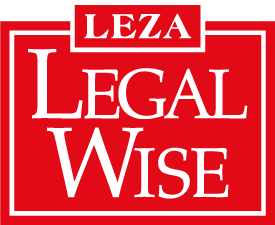Divorce
When can spouses get a divorce?
The sole ground for divorce to be presented to the court by either party to a marriage shall be that the marriage has broken down irretrievably.
The Plaintiff (person initiating the divorce) would have to satisfy the court on one or more of the following factors:
- That the defendant has committed adultery, and the plaintiff finds it intolerable to live with the defendant.
- That the defendant has behaved in such a way that the Plaintiff cannot reasonably be expected to live with the defendant.
- That the defendant deserted the plaintiff for a continuous period of at least 2 years immediately proceedings the commencement of the action.
- That the parties to the marriage have lived apart for a continuous period of at least 2 years immediately preceding the commencement of the action and the defendant consents to the divorce.
What will happen to the children upon divorce?
- Arrangements regarding the children born of the marriage and/or adopted children, such as with whom the children will stay after the divorce and maintenance, can be agreed upon by both spouses.
- If no agreement can be reached between the spouses, the judge will make the decision regarding the children after considering the circumstances of the matter, together with the observations and recommendations made by a Social Worker.
How will the property be divided upon divorce?
- Division of property can be agreed upon by both spouses.
- If no agreement can be reached between the spouses, the property must be divided according to whether the spouses were married in community of property or out of community of property.
- If the parties were married in community of property, the prevailing rule consideration is that the parties’ property ought to be divided equally.
How can a person get a divorce?
Only a division of the High Court of Botswana can grant a divorce. Currently, there are High Court Divisions at Lobatse, Gaborone, Francistown and Maun.
- A spouse who wants to get a divorce starts the procedure by filing and serving a summons on the other spouse.
- The other spouse can either agree to the divorce or defend the divorce.
- A professional, such as a legal practitioner, will be able to assist a spouse with the following:
- Drafting, filing and service of a summons for divorce;
- Defending a divorce;
- Division of the property;
- The care, contact and maintenance in respect of the children; and/or
- Spousal maintenance.
GLOSSARY
In Community Of Property: The concept of a marriage in community of property can best be explained by the legal consequences of such marriage. Everything a husband and wife had before they were married becomes part of the joint estate or joint estate. Everything earned or bought once married also becomes part of the joint estate. Each partner owns half of the joint estate. If one partner has a debt, money from the joint estate can be used to pay this debt. Both partners must agree to sell, give away or borrow money or property. Both partners must agree if they want to take out a large loan. If the couple divorce or if one partner dies, the property will be divided in half.
Joint Estate: means that all assets and debts are combined into one property which is managed by both spouses acting together during the marriage and divided in half when the marriage ends by death or divorce. It simply means the estate or the property is owned by both spouses.
Mediation: The mediation process is conducted by a mediator, who is a facilitator. He/she does not impose a decision upon the parties. Rather, the mediator’s job is to encourage the parties keep talking and to help move them through the more difficult points of contention. This process is an alternative way to begin the divorce process, before any court proceedings are initiated. Should the parties agree on the divorce, the property and children at this stage, it makes the court proceedings easier.
Out Of Community Of Property: This concept means that everything a husband and wife had before they were married remains their own personal property. Once they are married, they keep their own earnings. They are each responsible for their own loans and debts. The husband or the wife can buy or sell their belongings without seeking permission from the other spouse. They can each take out a loan without asking the other person. However, not all costs are separate. The cost of household needs should be shared because a husband and a wife have a duty to maintain each other. If a couple wants a divorce, they each keep their own property and anything they bought together is divided equally. If one partner dies, it is only that partner’s separate property which goes to the heirs.
How can LegalWise assist you?
Should you require an explanation of your rights on this topic, please contact your nearest LegalWise Branch, call, e-mail or WhatsApp us. For more information about our membership options visit our legal services page or visit our join now page.
